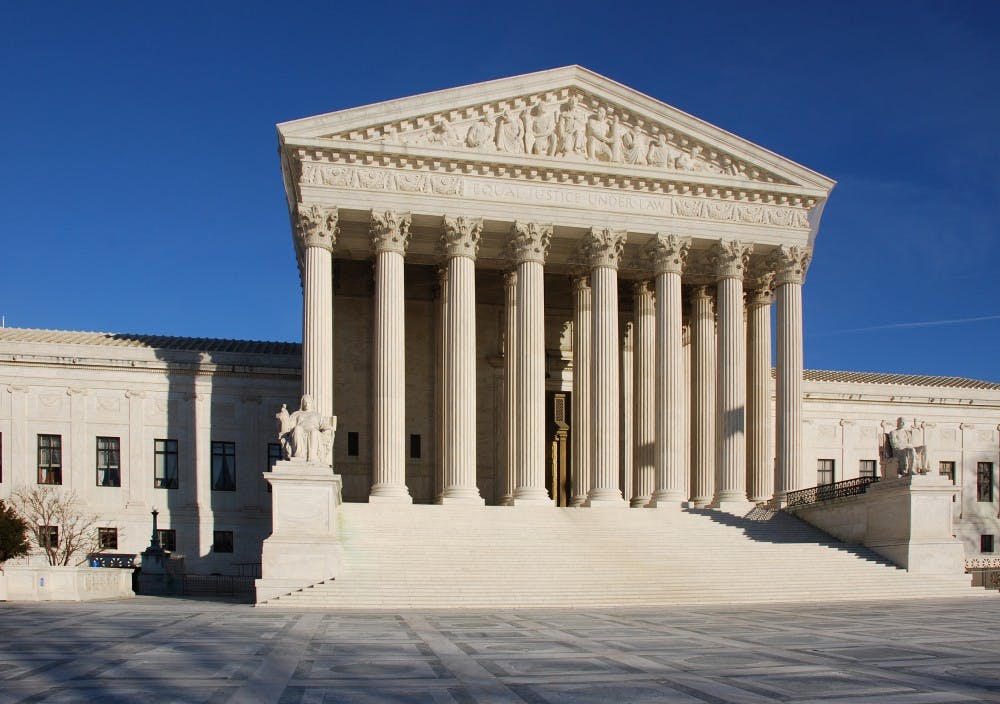Four University Law graduates have been selected to clerk for the Supreme Court this year, tying the University’s previous record high.
Class of 2014 Law graduates Andrew Kilberg and Ben Tyson will clerk for Justice Anthony Kennedy and Chief Justice John Roberts, respectively, and Class of 2013 graduates Galen Bascom and Jonathan Urick will clerk for Justice Stephen Breyer and Justice Antonin Scalia, respectively.
Law School Dean Paul Mahoney said any given year the University usually sends two or three clerks. Since 2005, the University is fourth — behind Harvard, Stanford and Yale — in number of graduates sent to clerk for the Court, he said.
“It shows both that we have great students and that our faculty work closely with them and get to know them,” Mahoney said in an email. “When our students apply for clerkships, our professors can recommend them knowledgeably and with conviction.”
Law Prof. Saikrishna Prakash, who teaches Constitutional law, said the high number of graduates serving as clerks demonstrates the caliber of University Law students.
“It confirms that U.Va. Law students are among the best in the country,” Prakash said. “We get absolutely wonderful students who matriculate [here] and hopefully we make them better still and enable them to compete for the topmost jobs after graduation.”
Kilberg, who is currently clerking for Judge J. Harvie Wilkinson III of the U. S. Court of Appeals for the Fourth Circuit, said he is looking forward to what he sees as an incredible opportunity.
“As anyone who has witnessed an oral argument can tell you, there is a buzz about the Court, an excitement over the proceedings,” Kilberg said in an email. “A Supreme Court clerkship is not just a great jumping off point for a legal career, it is also the experience of a lifetime.”
Prakash said these positions are coveted because of the honor that comes with working so closely with a Supreme Court justice.
“It’s certainly a mark of high distinction for someone right out of law school to be able to work with the most important judges in the land,” Prakash said.
The Supreme Court accepts 36 clerks each year. Kilberg said that finding out he was chosen as one of those 36 was surreal.
“I thought I had a shot at a Supreme Court clerkship, but the reality of it all did not really hit me until I got the phone call,” Kilberg said. “I was excited and dazed at the same time.”
Prakash knew Kilberg and Urick personally, he said. Both were distinguished students because of their wide knowledge of law and impressive ability to apply that knowledge.
“[They have] the complete package of having a firm, grounded grasp of the law, being able to convey that orally and being able to write elegantly in a way that can convey all of the law’s complexity,” Prakash said.
Kilberg said he can use this opportunity to bring the knowledge he gained at the University and in his current clerkship into practice.
“I've already learned a significant amount on a variety of areas of law from Judge Wilkinson (law school class of 1972),” Kilberg said. “Clerking at the Supreme Court will require me to dig into and master a multitude of legal doctrines in order to assist the Justice.”
“The year will be challenging, but immeasurably rewarding,” he said.







